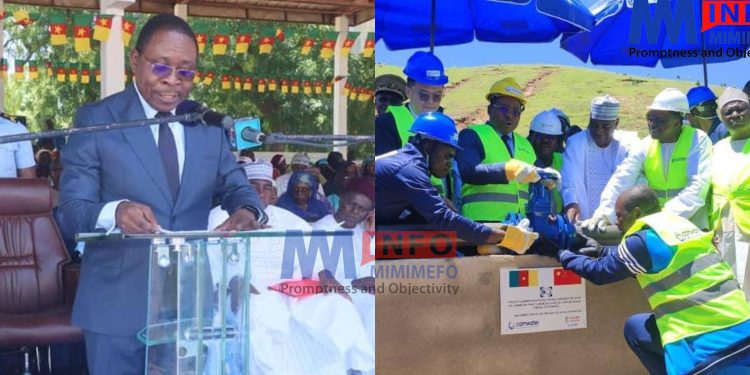Cameroon’s Minister of Water and Energy, Gaston Eloundou Essomba, on September 20 laid the foundation stone for the second phase of a Drinking Water Supply Project that will supply nine cities in the country.
The project, which is funded by the Chinese Government, will provide potable water to over half a million people living in Kribi, Bafoussam, Bamenda, Sangmélima, Garoua-Boulai, Dschang, Yabassi, Maroua, and Garoua.
The project will involve the construction of five new high-speed boreholes with an additional production capacity of 13,000 cubic metres per day, as well as a 5,000-cubic-meter storage reservoir. The project is expected to be completed in 36 months.
In a speech at the launching ceremony in Maroua, Minister Essomba said that the project is a sign of the government’s commitment to providing clean drinking water to all Cameroonians.
He said that the project will improve the quality of life for residents of the nine cities and help curb waterborne diseases.
Major cities in Cameroon have suffered water crises for years now, including cities like Buea, which has enormous natural water potential.
The city and other areas in Cameroon have witnessed recurrent cholera outbreaks for years now, and poor water sources are usually blamed.
The potable water scheme could help prevent such an outbreak in other cities in the country.
Residents of Maroua, where the water scheme was launched, saluted the project as timely. They have suffered an acute water crisis for years now, but are now hopeful the project will improve their livelihood.
“We have been suffering for years now because of water issues. We do not have good quality water here and at times drink the same water with animals. It is really a good thing if quality drinking water comes to us. We are happy about the project,” Mariam Assoufa, an inhabitant of Maroua, told journalists.
The Drinking Water Supply Project is part of the Cameroon Government’s larger plan to improve access to clean drinking water for all Cameroonians. The government plans to improve access to clean drinking water from 65% in 2022 to 85% by 2030.
The project is also aligned with the United Nations Sustainable Development Goal 6, which calls for universal access to clean water and sanitation by 2030.



